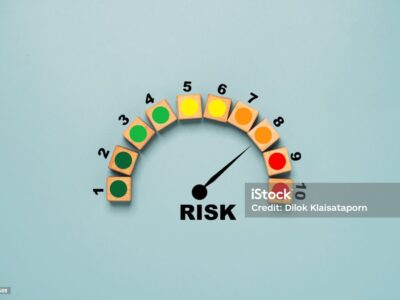Q: What is an errors and omissions insurance policy?
A: Errors and omissions (E&O) insurance, also known as professional liability insurance, is a type of coverage that protects businesses and professionals from claims of negligence, mistakes, or inadequacy in their work that have caused financial loss to their clients. Essentially, this insurance policy provides coverage in the event that a professional’s actions, or lack of action (omission), result in any type of damage or loss to the client.
Q: How does errors and omissions insurance work?
A: If a claim for a professional error or omission is made against a professional or business, the E&O insurance will help cover the cost of defense, settlements, and possible court-directed compensation. However, it’s important to note that the policy limit will cap the amount that the insurer will pay.
Q: Who needs errors and omissions insurance coverage?
A: Any professional or business that provides advice, services, or expertise to clients may benefit from E&O insurance. This includes, but is not limited to, professionals like lawyers, accountants, architects, engineers, consultants, and real estate agents.
Q: What types of claims are covered under an errors and omissions policy?
A: E&O policies usually cover financial loss caused by professional negligence, errors, or omissions. This includes issues such as breach of contract, providing incorrect advice, failure to provide a service, and negligence in providing a service. The specifics of what is covered will depend, in part, on the contract that defines the terms of the insurance policy.
Q: Is it expensive to get an errors and omissions insurance policy?
A: The cost of an E&O policy can vary greatly depending on the size of your business, the industry you are in, the risks associated with your professional services, and other factors. Typically, higher risk professionals or businesses may have higher insurance premiums.
Q: Does errors and omissions insurance cover all potential mistakes?
A: No, errors and omissions insurance usually does not cover deliberate, dishonest or fraudulent acts. Also, it typically doesn’t cover cases of bodily injury or property damage. These types of issues are usually covered under other forms of insurance like a general liability policy.
Q: Can a client sue me even if I have an errors and omissions insurance policy?
A: Yes, a client can still sue you, and the E&O policy helps you handle the lawsuit by providing for defense costs, legal expenses, and any potential settlements or judgments up to the policy limit.
Q: How do I file a claim under my errors and omissions insurance policy?
A: To file a claim under your E&O insurance policy, you should first notify your insurer of the circumstance that may lead to a claim. The insurer will then guide you through the process, which typically requires providing detailed information about the situation, including any relevant documentation.
Q: Can an errors and omissions policy protect me against a lawsuit from a service I provided before purchasing the policy?
A: Generally, an errors and omissions insurance policy does not cover incidents that happened before the policy was purchased. However, it may be possible to arrange for “retroactive coverage” from the date of the start of your professional activities. This depends entirely on your insurer and the specific terms of your policy.
Q: Is a deductible applied for errors and omissions insurance?
A: Yes, most E&O policies have a deductible that the policyholder is responsible for before the insurer pays out for a claim. The amount of the deductible will vary based on your policy terms and agreements with your insurer.
Q: What is errors and omissions insurance?
A: Errors and Omissions insurance, also known as E&O or Professional Liability Insurance, is a type of coverage that protects businesses and individuals from claims of negligence, failure to deliver services, or making mistakes that cause financial loss to clients.
Q: How does an errors and omissions insurance policy work?
A: When a client files a claim alleging that your professional negligence or mistake caused them financial damage, your errors and omissions insurance policy steps in. It can cover legal expenses, settlements, and court costs, up to your policy’s limit.
Q: Who needs an errors and omissions insurance policy?
A: Any professional who provides a service or advice to clients can benefit from errors and omissions insurance. This includes consultants, accountants, architects, real estate agents, attorneys, and more. If there is a risk of being sued for a mistake or omission in your work, you should consider this coverage.
Q: What does an errors and omissions insurance policy cover?
A: An errors and omissions insurance policy covers claims resulting from professional mistakes, negligent acts, or failure to deliver promised services that cause financial loss to a client. It usually covers legal expenses, settlements, and court costs, providing financial protection to professionals.
Q: Is it mandatory to have errors and omissions insurance?
A: While errors and omissions insurance is not legally required in all fields, many industries and clients require professionals to carry it. Even if it’s not mandatory, it’s often highly recommended as it provides protection from potential costly lawsuits.
Q: How much does an errors and omissions insurance policy cost?
A: The cost of an errors and omissions insurance policy can vary depending on several factors including the type of work you do, the size of your business, your claims history, and the amount of coverage you want. It’s best to consult with an insurance expert to understand the likely cost for your specific circumstance.
Q: What is not covered under an errors and omissions insurance policy?
A: E&O insurance typically doesn’t cover intentional dishonesty or fraud, claims of property damage or bodily harm (these are often covered by general liability insurance), or claims related to services not named in the policy contract. Always read your policy carefully to understand its limits and exclusions.
Q: How can I make a claim under my errors and omissions insurance policy?
A: If you have a professional liability claim, you should immediately contact your insurer. Typically, you’ll be required to provide a written notice of the claim, including basic details of the claim and documents that support your case. Your insurer will then work with you to defend against the claim.
Q: Does my errors and omissions policy extend to my employees?
A: Yes, typically an errors and omissions insurance policy extends its coverage to the actions of your employees and subcontractors. However, the specifics may vary from policy to policy, so it’s crucial to read your policy contract thoroughly.
Q: Can an errors and omissions policy protect me if I get sued after my policy expires?
A: Generally, an errors and omissions policy offers what is called “claims-made” coverage. This means that the policy covers claims made during the policy term, even if the alleged mistake occurred before the policy began. However, once your policy expires, coverage typically won’t extend to claims made after that – unless you have “tail” coverage or an extended reporting period.

Aleksandra Kosanovic
Aleksandra, a leading Insurance Risk Analyst with a wealth of experience, specializes in evaluating and managing potential insurance risks. Her expertise lies in crafting strategies that optimize coverage while minimizing vulnerabilities. Through this platform, Aleksandra provides readers with invaluable insights, helping them make well-informed insurance choices in a dynamic market landscape.



